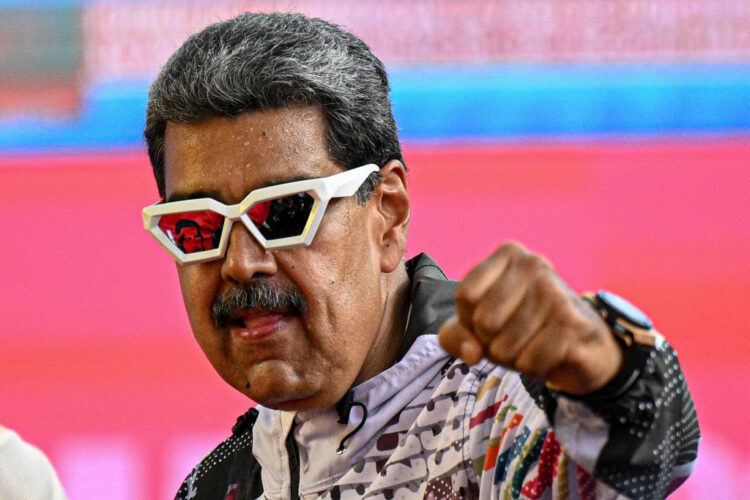In 2013, Chávez died. And under his successor, Nicolás Maduro, the political system Chávez had run with at least a nod to democratic forms became an unapologetic dictatorship. Elections became charades and members of the political opposition began to fear for their lives. Economically, the country became a basket case. As The Economist put it in 2014: “A big oil producer unable to pay its bills during a protracted oil-price boom is a rare beast. Thanks to colossal economic mismanagement, that is exactly what Venezuela, the world’s tenth-largest oil exporter, has become.”
As domestic manufacturing and agriculture collapsed, Venezuela’s trade imbalance yawned so widely that the country ran out of currency. Its import-reliant food supply cratered, and the Maduro government became unable to pay for the provision of basic services or to keep the peace. Crime skyrocketed across the country, and starvation reigned. Typical was the case of a music teacher quoted in The Guardian in 2018, who claimed that he had lost 8kg in a year on the “Maduro Diet”. “A litre of milk,” he said, “costs 280 soberanos, a box of eggs is 1,000, a kilo of cheese 1,000. If I buy this, that’s my whole monthly salary.”
Unsurprisingly, what started as a trickle of emigration from Venezuela in the mid-2010s has turned into a flood, as Venezuelans who could afford to leave have sought asylum in other countries, particularly neighbouring Colombia. According to the UN Refugee Agency, 20% of Venezuela’s population has now left — a total of 7.7 million people.
If Maduro’s rigged third-term victory this week is allowed to stand, Venezuela’s near future looks just as bleak. Most likely, current opposition leader Edmundo González will soon be forced to leave the country out of fear for his safety, as his predecessor Juan Guaidó did last year. In the six years before the next sham election, Venezuela’s population is projected to decline by another 10%. As they see their country trapped in the hands of the Latin incarnation of Libyan despot Muammar Gaddafi, Venezuelan exiles will put down roots in Colombia, Peru, Brazil or the US. And the most valuable natural resource underlying Venezuela’s onetime blossoming — its people — will be irretrievably lost.
For those with Latin American roots, following the region’s politics often feels like having a younger sibling who every few years falls in with the same sort of bad partner or bad crowd. For more than 50 years, we’ve watched a continent bounce like a pinball machine from extreme to extreme. One decade: the caudillo with his sky-high deficit spending, agrarian reform, industrial nationalisations, hyperinflation, mass unemployment, poverty. The next: the military junta with its extreme fiscal austerities, incarceration of political opponents, desaparecidos, autocracy, fear. From Allende to Pinochet and back again in Chile, from Bolsonaro to Lula in Brazil, from Banzer to Morales in Bolivia, from Perón to Galtieri in my family’s native Argentina.
Through it all, constant unrest, constant suffering and a gradual siphoning off of the wealth, talent and international relevance of an entire continent. For centuries, European colonisers appropriated South America’s wealth. Today, the continent gives it away voluntarily — through brain drain, corruption and an omnipresent volatility that makes any smart foreign investor think twice. But there’s always a rock bottom. And the Chávez and Maduro regimes in Venezuela have achieved it. If there can be any silver lining to the devastation wrought upon Venezuela by this duo, it is that they have finally shown Latin America its nadir.
Source link : https://unherd.com/2024/07/venezuela-has-reached-its-nadir/
Author :
Publish date : 2024-07-29 19:24:05
Copyright for syndicated content belongs to the linked Source.
